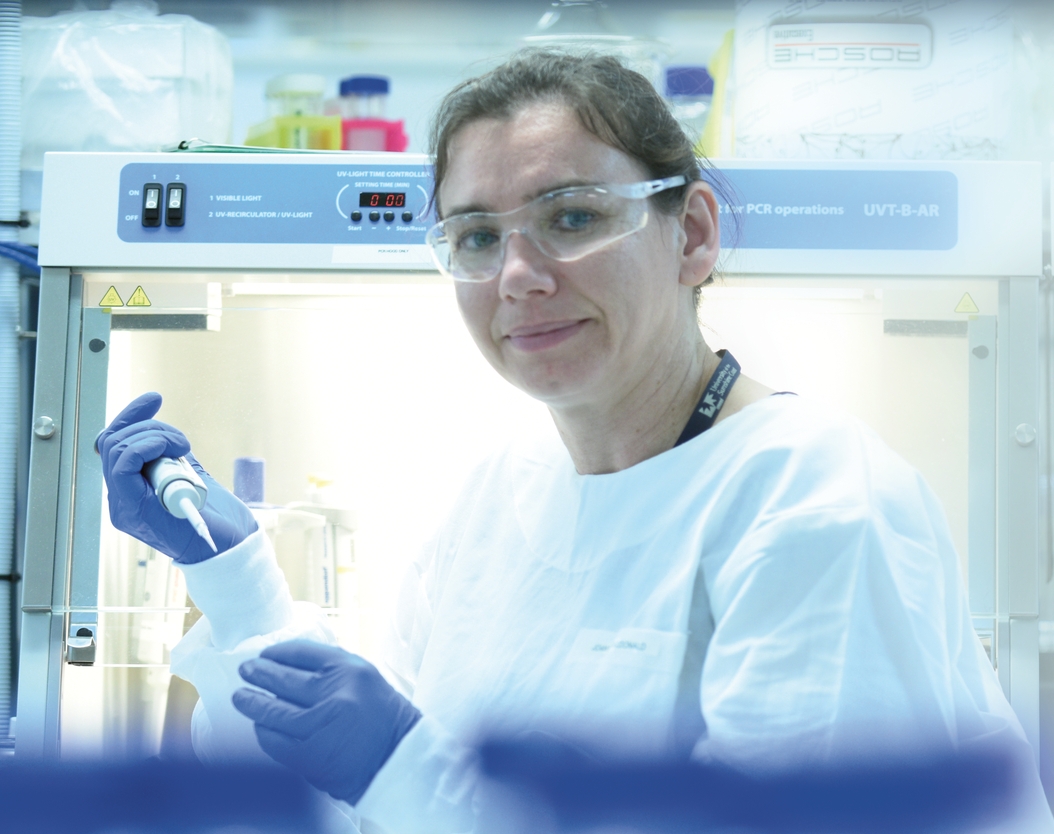University of the Sunshine Coast-led research has developed a simple dipstick test to screen for a highly infectious, potentially deadly virus transmitted by bats to humans and pigs in Asia.
UniSC’s Centre for Bioinnovation worked with CSIRO’s Australian Centre for Disease Preparedness on the research into the Nipah virus, published in Frontiers in Microbiology.
The virus was first identified in 1999 in Malaysia, where it was associated with an outbreak of respiratory and neurological disease in pigs, with transmission to humans resulting in encephalitis (brain inflammation) and deaths.
Symptoms of the virus in humans are fever, headache, coughing, difficulty breathing and vomiting. Severe symptoms can include confusion, seizures, coma, severe respiratory distress and encephalitis. It is fatal in 40 to 75 percent of cases.
The research was funded by DMTC, which provides Australian Government agencies such as Defence with advice and solutions in new technology fields such as medical countermeasures.
UniSC Associate Professor of Molecular Engineering Dr Joanne Macdonald said, “Our test allows, for the first time, screening for the virus outside of the laboratory.
“We can do this through a novel sample preparation method that inactivates the virus in the first step of the procedure, making it safe to perform testing outside of a lab.”
Postdoctoral researcher Dr Nina Pollak, who applied the UniSC technology for Nipah virus detection, said a simple lateral flow dipstick showed a final result, similar to COVID RAT screening.
“However, it is much more sensitive than a RAT because it includes an amplification step similar to a PCR, which provides laboratory-level sensitivity but in a highly portable format,” said Dr Pollak, a UniSC Research Fellow.
Dr Macdonald said a rapid, portable, point-of-care test for Nipah virus would be useful in rural or remote areas in Asia where outbreaks of the virus have occurred in the past, as well as areas where fruit bats, which are known to carry the virus, are found.
“Such a test would also be useful for healthcare workers, veterinarians, ADF personnel and other professionals who may be at risk of exposure to the virus,” she said.
The Nipah virus has not yet been identified in Australia, though it is closely related to the Hendra virus which is transmitted by flying foxes to horses and humans and has caused fatalities in Queensland and New South Wales.
Dr Macdonald said the next step would be to move to clinical trials to demonstrate the test in people and animals in real-world conditions.
Co-authors on the paper are: UniSC Senior Lecturer in Microbiology Dr David McMillan, UniSC research assistant Malin Olsson and CSIRO Australian Centre for Disease Preparedness principal research scientist Dr Glenn Marsh.
Medical company BioCifer is involved in the research. Dr Macdonald is its Chief Technology Officer.
The project team was awarded a high commendation at the Land Forces 2022 Innovation Awards, in recognition that this diagnostic technology represents a capability advantage to ADF personnel, and enhances Australian capability in rapid, accurate and low-recourse disease detection.
Related articles

Focus on healthier people and planet proves winning formula for UniSC
30 Aug 2024From a ‘game-changing’ koala chlamydia vaccine to a trial of a needle-free flu vaccine, the University of the Sunshine Coast’s success in research and bioinnovation has been recognised in the Life Sciences Queensland GENE Awards

New koala research seeks chlamydia hotspots and risk factors
20 May 2024University of the Sunshine Coast researchers will develop a frontline tool to diagnose chlamydia risk factors in koalas and use detection dogs to seek out chlamydia hotspots

Spider venom to be developed into insecticide against locusts
9 May 2024A University of the Sunshine Coast researcher is using arachnid venom to help farmers fight locusts, after being awarded a $240,000 Advance Queensland Industry Research Fellowship
Media enquiries: Please contact the Media Team media@usc.edu.au

